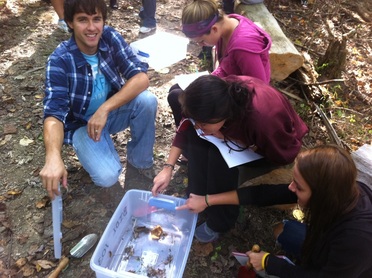BIOL 103 - Life on Earth

A four-credit, lecture and laboratory course for non-majors that provides a basic introduction to the concepts of ecology, biological diversity, and evolutionary biology. Students will learn fundamental ecological concepts about how living things interact with each other and the physical environment and apply these to understanding the origin of the tree of life and environmental problems facing populations, communities, and ecosystems, while also learing about the mechanisms and consequences of evolution.
Learning Objectives:
1. Understand how life on Earth is shaped by basic ecological processes that affect individuals and that scale up to populations, communities, and ecosystems and across generations to affect evolution and origin of species and biological diversity.
2. As informed citizens, identify problems and issues related to ecology, evolutionary biology, and biological diversity.
3. Describe the scientific method and understand how to devise experiments to test this method in a laboratory setting. Understand how scientific knowledge develops through iterative inductive and deductive approaches to inquiry. Understand how scientifically derived knowledge differs from other ways of knowing and belief.
Learning Objectives:
1. Understand how life on Earth is shaped by basic ecological processes that affect individuals and that scale up to populations, communities, and ecosystems and across generations to affect evolution and origin of species and biological diversity.
2. As informed citizens, identify problems and issues related to ecology, evolutionary biology, and biological diversity.
3. Describe the scientific method and understand how to devise experiments to test this method in a laboratory setting. Understand how scientific knowledge develops through iterative inductive and deductive approaches to inquiry. Understand how scientifically derived knowledge differs from other ways of knowing and belief.
